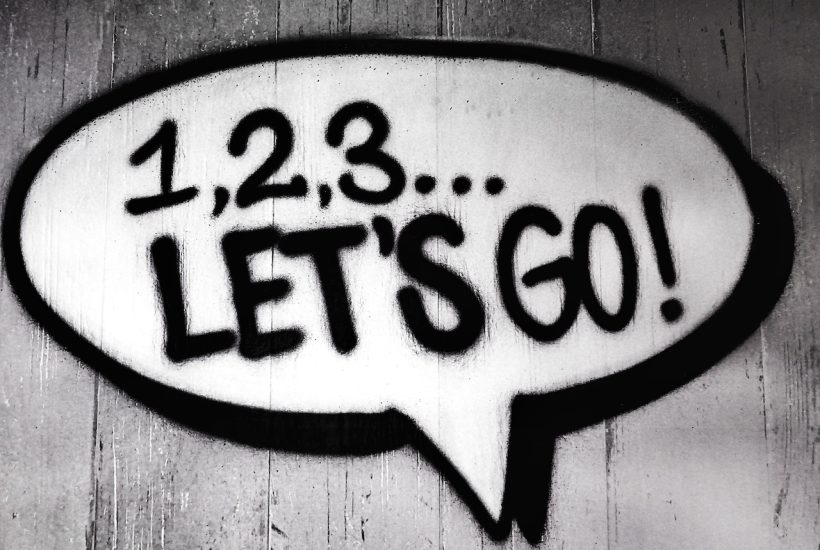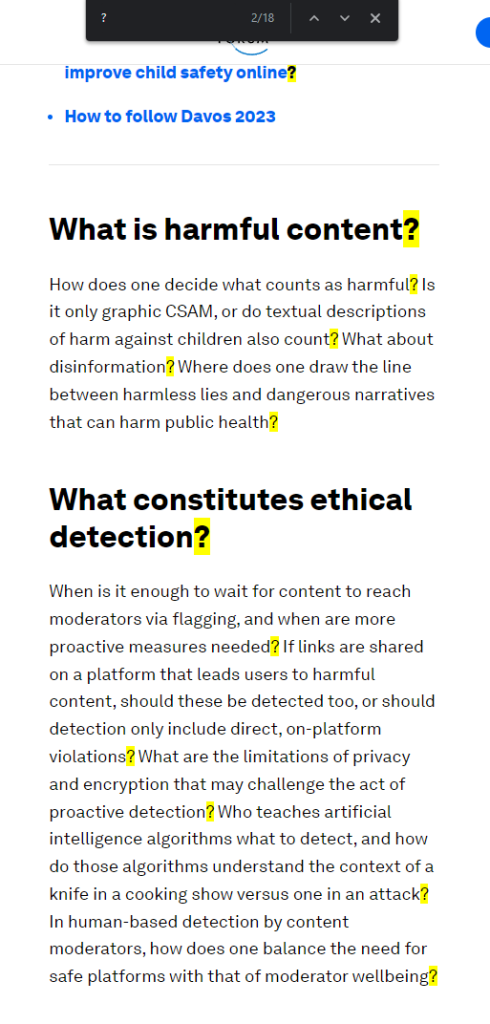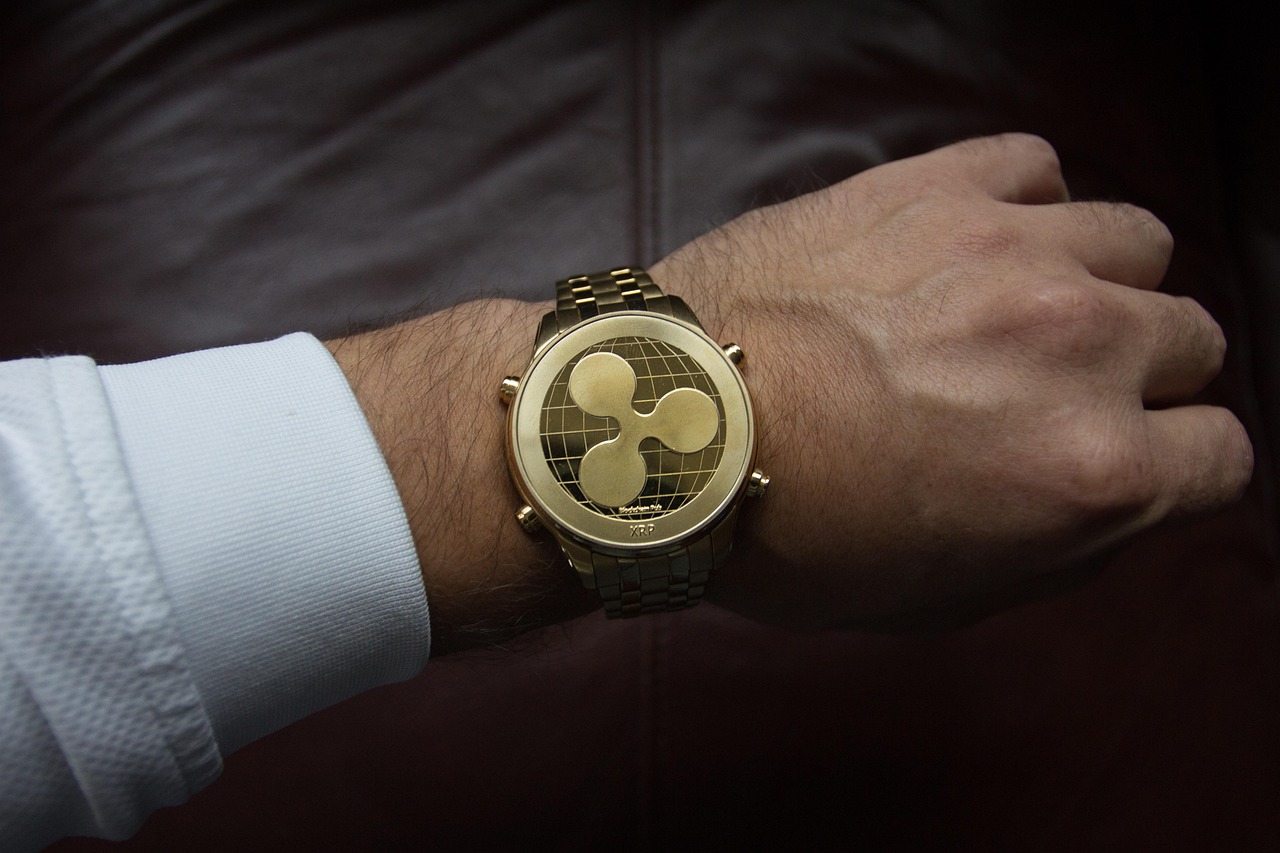Business
The TopRanked.io Weekly Affiliate Marketing Digest [+ Coinmama Affiliates Review]
When world powers combine to attack your freedom to make yo mama jokes and market how you please, what do you do? That’s right. You make money. This week, we’ll cover what Worldcoin and a bunch of other dystopian stuff mean for you. And, while we’re at it, we’ll introduce you to the only mama that’s gonna take better care of you during the impending internet/crypto wars than your own — Coinmama.

Quick Disclosure: We’re about to tell you how Coinmama runs a top-notch crypto affiliate program. And we really mean it. Just know that if you click on a Coinmam link, we may earn a small commission. Your choice.
Fellow affiliates.
As we speak, the internet is facing the biggest assault on freedom of expression, freedom of access, and freedom to market whatever the heck you want that we’ve seen in a long time.
So it’s only fitting that I open with a soon-to-be-banned meme. A meme combining a bunch of themes from this week’s TopRanked affiliate marketing digest (social justice, kids, and the internet).

Oh, and yes, yo mama is a part of this week’s digest, too.
Which mama is that?
That would be yo Coinmama. That’s who.
TopRanked.io Affiliate Program of the Week — Coinmama
Crypto’s about to get a whole lot bigger again. Between the Woldcoin drop, Blackrock promising to “democratize crypto” (lol), and Twitter’s rebrand to 𝕏 (which probably entails Dogecoin), things are definitely moving again.
That means, there’s never been a better time than now to start promoting a leading crypto exchange.
As for which one to promote, our pick’s Coinmama.
Meet Coinmama
Unlike Blackrock’s pump-and-dump ETFs, Coinmama is a brand you can actually trust to democratize crypto. That’s because it’s a platform built from the ground up to be fast, user-friendly, and efficient.
To achieve this, Coinmama delivers clients with fast-track verification, instant delivery across a huge bunch of coins, and fair exchange rates.
Oh, and unlike others, Coinmama doesn’t require you to deposit your coins into a custodial wallet. That means Coinmama sends them directly to any wallet of your choice.
For this, Coinmama charges a simple commission fee — between 0.99%-3.9%. A fee which, compared to the transaction processing fees of major credit cards (and yes, Coinmama lets you pay with credit card), leaves me wondering how Coinmama makes a profit.
But hey, we’re not here to discuss Coinmama profits.
So let’s discuss yours.

Yo Coinmama Commission’s So Fat That…
Coinmama pays some pretty handsome commissions to its affiliates (which will include you if you sign up here… wink, wink).
Here’s what you need to know:
- Coinmama pays 30% of its commission to affiliates. While this will vary, it works out to somewhere in the region of about $10 per $1000 you refer.
- Coinmama pays uncapped lifetime commissions. That means if you refer someone to Coinmama today, you still get commissions on their Coinmama transactions tomorrow… and the day after… and the day after the day that’s 10 years in the future…… you get the point.
Yo Coinmama Gonna Look After You
Of course, Coinmama has a bit more going for it than just commissions. For starters, Coinama will pay you how you want. If you want fiat (USD, EUR, etc.), then you can have it. If you want crypto (BTC, etc.), then yo Coinmama gonna give that to you, too.
Coinmama also provides all the bells and whistles you need to be a top affiliate. So expect nothing but the best when it comes to tools, trackers, marketing content, and affiliate managers.
We wouldn’t recommend Coinmama otherwise.

Wanna Join Coinmama? Here’s How
If all this Coinmama talk has you excited, then there’s just one thing you got to do — head here to sign up.
Alternatively, if you’re still on the fence, check out the full TopRanked Coinmama affiliate program review.

News Takeaways — Killing in the Name of Social Justice, AI Saftey, and… Advertisers
When talk fires up in the press about the latest assault on a free and open internet, we marketers can often choose to ignore it. Usually, the repercussions of any debate tend to be purely political.
Of course, that’s not to say you shouldn’t care about things like personal liberties, free speech, and whatnot. It’s just, you don’t usually need to worry about it from a “can I continue marketing on the internet” perspective.
But this week, the way you (maybe) use the internet as a marketer has come under a rapid-fire assault from multiple angles. And that means, for once, it’s probably worth sitting up and paying attention to what’s brewing.
Here’s What’s Cooking
This week, we’ve seen multiple news items burst onto the scene with various proposals that, if successful, will drastically change the way you access the internet.
The big one that you’ve probably seen by now is Sam Altman’s Shi*c… er, I mean… Worldcoin project.
Chances are, if you’ve read about it, you’ve probably heard a lot about privacy concerns. Either that or the theory that it’s nothing more than another plot for a bunch of Silicon Valley VCs to pump and dump yet another worthless shi*coin onto the unsuspecting masses.

But we’re not here to talk about privacy or crypto scams.
What we’re really here to talk about is how Worldcoin plans to control who can and can’t access the internet. This is the part that has very real implications for you as a marketer.
But more on that later.
The other big proposal that just dropped this week is Google’s “Web Integrity API.” This plan, in a nutshell, is nothing more than a thinly-veiled attempt by Google to allow it to control who can and can’t access the internet.
But why would Google want to do that, and what impact will this have on you?
Yep, you guessed it… more on that later.
The other news item that’s 100% worth keeping an eye on is obviously the Twitter rebrand to 𝕏, which was curiously announced right ahead of Worlcoin… not that there’s anything going on here.
Now, this is not to say you should be concerned about 𝕏. At least, not by default.
As much as Musk is sometimes closer to a petulant child than a serious businessman, at this stage, he certainly seems like a more robust alternative. Or, at least, he does when compared to someone like the WEF-aligned Altman.
But, when his ambitions include taking over “half of the global financial system”, you should at least pay attention.
Why’s that?
Yep. More on that later.
Let’s Start With Worldcoin
Until we have more concrete details on what Musk is planning with 𝕏, there’s little point hypothesizing about that.
Instead, let’s turn our attention straight to Worldcoin.
By now, you’ve probably heard about the noble causes behind the project — “Proof of Humaness” and “Universal Basic Income.” Naturally, this means the project has the dual purpose of creating Digital IDs and an alternative financial system.
Now, theoretically, Digital IDs are a necessity in a post-AI world. Or, at least, this is the thinly-veiled excuse Altman wants to use to push through World ID.

But, as we’ve covered before, being able to produce an infinite amount of “harmful AI content” doesn’t solve the old distribution problem. That’s the real problem which has, and always will be, the most difficult side of the equation — a side AI doesn’t help with. (Ever tried getting people to read your blog??? Yep, the content’s the easy part.)
More likely, what’s really going on is that Altman is responding to this little WEF agenda.
And, of course, that agenda just so happens to lump things like online content moderation in with digital ID.
As for why it would do that, that’s simple — being able to “hold people accountable” and limit who can and can’t access a platform.
Now, if this is all sounding a little conspiracy theorist at the moment, it might be worth paying attention to a couple of things.
The first is that the WEF signed a digital strategic partnership with the UN back in 2019 to cooperate on the “2030 Agenda, climate change, health, digital cooperation, gender equality and empowerment of women, education and skills.”
As for what this entails, that’s all outlined in the UN digital compact — a document that claims “we must strengthen accountability for harmful and malicious acts online.”
As for what we’re holding people accountable for, well, that will depend on developing “a shared understanding of what constitutes physical and mental harm based on universal human rights, and aligning safety standards across regions, countries and industries.”
How this actually looks in practice, no one’s terribly forthcoming. The WEF, in attempting to answer that question, used a total of 18 question marks in a short article.

Basically, it doesn’t want to answer.
But don’t worry. While no one can provide any real answers (despite the fact we’ve been debating this for years now), you should trust the Altman-UN-WEF joint task force to protect us from the unified threats to “Social Justice” and “AI Safety”.
But What’s This Got to Do With Marketing?
Right about here, I know what you’re thinking. This is all sounding terribly political. How do threats to my ability to discuss the credibility of the Proximal Origins paper threaten my ability to market what I want?
Well, let’s start with a little copy-past straight from the T&Cs of the Worldcoin marketplace: “Participants of the Marketplace in the business of buying and selling Digital Assets and wishing to list their availability for transactions on the Marketplace must be approved as agents on the Marketplace by us and must have a WorldID associated with them.”
As for what’s a non-approved activity, here’s another extract: “a service without added benefit to the buyer.” And yes, that section then goes on to include “contests, sweepstakes, gambling, or any other game of chance.”
So, in a world where the peons are dependent on lord Altman’s UBI shi*coin, you can kiss sportsbooks and whatnot goodbye.
But that’s not so bad, right? Maybe you could just promote a nice crypto platform, like the excellent Coinmama? Except, if Worldcoin, in its sole discretion, thinks such a program promises “unreasonably high rewards,” then, again, no chance.

As for what’s an “unreasonably high reward,” that definitely won’t be a catch-all used to sweep up any alternative to Worldcoin and its “certified partners.” After all, it’s not like big tech has ever been involved in any sort of anti-trust case, is it?
But let’s move on from Worldcoin for a moment. Whether this gets any traction in the global financial system is still up in the air.
What is more likely to get hold is the whole Proof of Humaness. Or, more to the point, “Sign In with Worldcoin.”
From an end-user perspective, this functions exactly like any other social sign-in button. The only difference is, you can only ever create one account. And, if you get banned anywhere, it will be impossible to simply signup with a new account.
This is down to Worldcoin’s “negative identification” feature.
Still, What’s This Got to Do With Marketing?
While “Sign in with Worldcoin” is probably still some time away from becoming a requirement, don’t doubt for a moment that some form of proof of personhood is going to become mandatory for participating online soon.
Between the WEF, UN, multiple governments, and private interests like Worldcoin, there are quite simply too many interests aligned here.
What this means, if it involves “negative identification” as Worldcoin does, is that you’re suddenly going to be marketing on a highly-censored, brand-safe, government-approved internet where you could find yourself locked out from participating in an instant.
Now, clearly, given the global scope of this, what will be censored will be fairly limited, right?
Well, maybe.
However, given that there is a fairly broad global consensus around “Agenda 2030” from all sides, expect ESGs/SDGs to play a big role here.
What this means for you as a marketer is that, as “stakeholders” come to decide what should and shouldn’t happen online, expect normal stuff to get banned.
What kind of normal stuff?
Well, one would be anything that comes with “climate” concerns.

Of course, this is just a small isolated case of such a “justified” ban. But it also serves as a warning about how what constitutes a concern will be arbitrary. After all, that same Dutch city never passed bans against advertising disposable products, air travel, and any other number of climate-harming products. But I digress.
Ultimately, where this is headed is in the fight against some vaguely-defined threat from “harmful” and “misleading” information.
And, to cut a long story short, once we start weaving the fabric of the internet together with persistent digital IDs and financial systems (which is what Worldcoin does), expect what you can market/sell to get caught up in it.
Basically, if Papa Altman and Co. think you (or what you’re selling) are a threat to social justice, AI safety, or whatever, they may one day have to tools to lock you out.
But let’s move on from Worldcoin.
Here’s Something a Little More Immediate
So the Worldcoin stuff is still very theoretical. Whether it catches on is dependent on a thousand things coming together. And hey, who knows… maybe it won’t be half as dystopian as it has the potential to be.
But here’s something that’s a little less theoretical — Google’s “Web Integrity API”.
This, in simple language, is Google’s plan to take control of the internet and decide who can and can’t access it.
And no, that’s not an exaggeration.
The proposal itself says it wants to establish a “trust relationship between websites and clients.” It wants to do this by allowing “web servers to evaluate the authenticity of the device and honest representation of the software stack and the traffic from the device.”
In rough terms, the way it works is by forcing browsers to connect to “a third party that can “attest” to the device a web browser is executing on.” This third party will then deliver “a verdict saying whether the [third party] considers the device trustworthy.”
As for why Google would want to do this, well… just as the UN/WEF like to throw kids and social justice out as cover for their agenda, Google likes to offer up advertisers and users as a cover for its policies. Here’s the main one:
“Users like visiting websites that are expensive to create… These websites fund themselves with ads, but the advertisers can only afford to pay for humans to see the ads”

Of course, from Google’s perspective, this is a massive red herring. Dito for advertisers. After all, in what world does Google or its advertisers benefit from bots not clicking on ads?
Sure, Google and other advertisers might get an initial warm, fuzzy feeling as higher-quality traffic rolls in.
But here’s the thing — what happens when market dynamics play out?
Well, to answer that, take a look at the ad landscape — a world where ad prices are largely determined by auction systems. The reality is, when ads are auctioned off, CPC will fast converge on whatever the real value of a click is to an advertiser.
That means, if an advertiser derives $X from Y clicks, it’s simply going to dedicate Z% of $X towards obtaining those Y clicks.
Effectively, while they might think they do, advertisers don’t really care whether Y is made up of 800 bots and 200 humans, or 200 humans and 0 bots. Auctions will just take care of that as CPC converges towards the net real value of those clicks.
In other words, the net result is that nothing changes for Google and its advertisers.
So what’s really going on here?
Well, there are at least a few of the nerds over on Github that see this as a threat to political dissent.

But, again, we’re not here for the politics. We’re here for the marketing, so here’s what it means for you.
Given that the mechanisms outlined in the proposal are essentially geared towards shutting down open access to the web, what really seems to be going on here is that Google wants to ban the bots.
That is, any bot except Google’s crawlers, of course… it knows websites will continue letting its bots through because, well, who’s gonna give up on SEO?
As for why it would want to do this, my theory is that it’s just another AI supremacy play rather than a political mind control one. After all, if no one but Google can freely scrape the web, then it’s suddenly going to get really expensive to get data.
As for how this affects you, I hopefully shouldn’t need to spell out why this is bad news. But, just in case I do, here it is:
If you ever need to do anything on the internet that involves a bot, whether that be scrape data or ‘boost’ a social media post, you could soon find yourself locked out.
Takeaway
While threats to the open internet don’t usually affect us marketers too much, don’t expect things to stay that way for long. Bots and the “AI bogeyman” are being combined with all manner of “noble causes” as cover to push out a bunch of stuff that could severely limit what you can do on the internet.
And, while I did say we weren’t here to discuss politics, it’s probably worth inserting a little reminder here about the agendas pedaled out by the “Moral Majority” in the past under such auspices as “saving the kids.”

Just saying, in case anyone’s thinking that handing over control of the internet is in any way a net positive. The reality is, even if you believe in the cause, the cause in which you believe doesn’t necessarily believe in you.
As for how you can make money out of this (because, after all, that’s what we’re here for, right), here’s how.
What’s happening right now is probably just the start of a bunch of power plays. People want control of financial systems, the internet, and, ultimately, your identity. And any time this sort of stuff starts brewing, you can bet one thing.
People are going to start becoming a whole lot more paranoid.
What that means, in terms of what you can sell, is pretty simple. Find something that combines anonymity and online freedom with a viable alternative Worldcoin.
Any ideas???
That’s right, go sell crypto. Coinmama will help you with it, and the people will thank you for it.

Closing Thought
That was a long one. Let’s keep this closing thought short.
Actually, let’s not even have a closing thought.
Instead, let’s have some food for thought.
Meet Barry Hott — the “ugly add” guy.
Barry has made a career out of ads like this:
Today, his Twitter feed is full of dozens of money-spinning examples like this:
Go check them out, and use them as inspiration for a yo Coinmama campaign.

__
(Featured image by SevenStorm JUHASZIMRUS via Pexels)
DISCLAIMER: This article was written by a third party contributor and does not reflect the opinion of Born2Invest, its management, staff or its associates. Please review our disclaimer for more information.
This article may include forward-looking statements. These forward-looking statements generally are identified by the words “believe,” “project,” “estimate,” “become,” “plan,” “will,” and similar expressions. These forward-looking statements involve known and unknown risks as well as uncertainties, including those discussed in the following cautionary statements and elsewhere in this article and on this site. Although the Company may believe that its expectations are based on reasonable assumptions, the actual results that the Company may achieve may differ materially from any forward-looking statements, which reflect the opinions of the management of the Company only as of the date hereof. Additionally, please make sure to read these important disclosures.

-

 Fintech1 week ago
Fintech1 week agoRipple and Mercado Bitcoin Expand RWA Tokenization on XRPL
-

 Crypto11 hours ago
Crypto11 hours agoXRP Hits New All-Time High Amid U.S. Crypto Policy Shift and Ripple’s Expansion
-

 Impact Investing1 week ago
Impact Investing1 week agoItaly’s Electric Cars Market Rebounds, but 2030 Targets Remain Elusive
-

 Cannabis3 days ago
Cannabis3 days agoGermany Moves to Tighten Medical Cannabis Rules Amid Surge in Private Use














